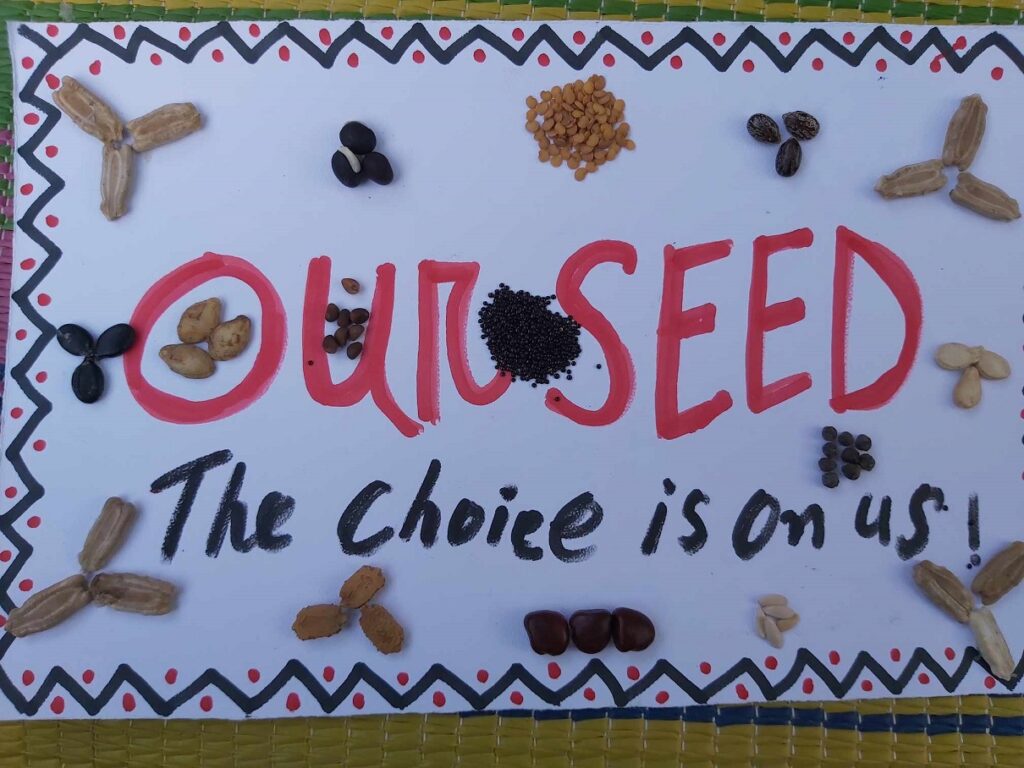By Silvanus Lamin
We know and even witness that women account for a substantial proportion of the agricultural labor force. They including men play role in food production including doing all households works which are not economically measured. Facilitating development activities in different parts of Bangladesh BARCIK has accumulated the experiences about the contributions of rural women to agricultural production, food security and nutrition, land and natural resource management, and building climate resilience. In spite of their contribution women and girls in rural areas suffer disproportionately from multi-dimensional poverty. They are productive and enterprising alike their male counterparts but experience discrimination and negligence. They seldom are able to access land, credit, agricultural inputs, markets, and handsome wages and obtain lower prices for their crops.
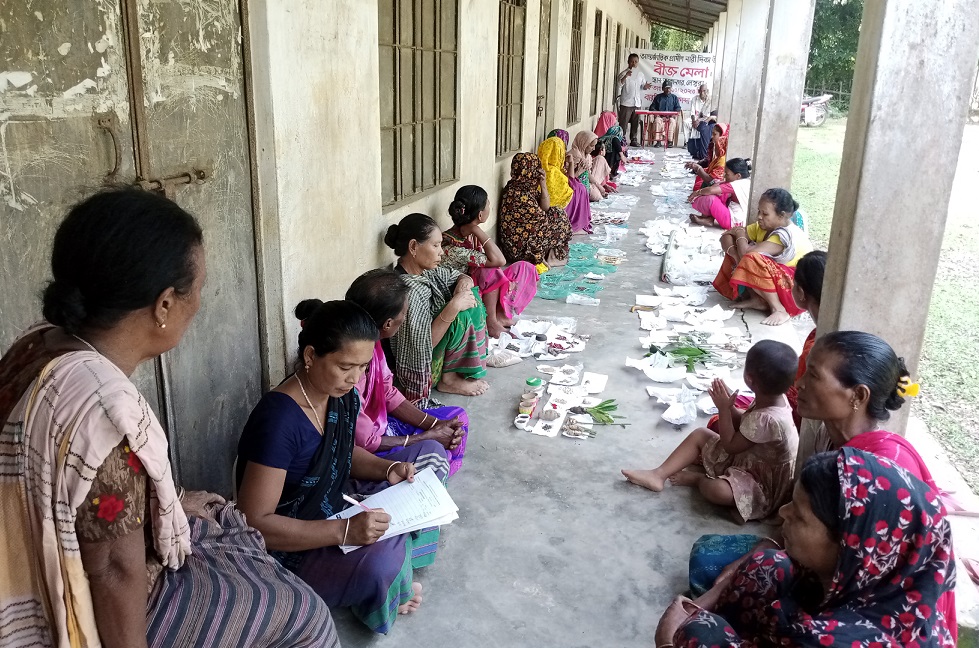
On the other hand, it has seen that male dominates the society and the decision-making mechanism featuring women as household keepers. Their works compose of cooking, taking care of children and serving the unpaid labours of the families. It has been seen that women laborers get lower wage than men although they do the same works and the underlying cause of this is the existing male dominated social beliefs and values where women are seen as sub-ordinates of men. Women can seldom participate in decision making process that relates their life and livelihood. Moreover, illiteracy, superstitions and lack of involvement in income generating activities has intensified their low status in the family and society. It has been seen that in Bangladesh women and young girls are more disadvantaged than men in their access to education, employment, services and entitlements. Women are often side-lined and excluded in all social, familial, economic and even political decision-making process leading them to be considered as inferior to men which is also a hindrance to achieve the SDG. Therefore, problems such as violence against women, early marriage, eve-teasing, lack of women’s access to decision making process, controlled mobility, women harassment and lack of access to family property are very common in the country.
BARCIK as development organization has been implementing development intervention in different parts of Bangladesh with a focus on creating gender awareness in the family and society levels where women could have the space to have their say and their works and contributions to both food production and households are recognized in the family and society. The organization has been facilitating different trainings and activities to aware, organize the women, form their associations and get involved in income generating activities. The main objective of these development interventions is to foster the empowerment process of women. However as part of creating awareness and motivating the women both urban and rural areas BARCIK every 15 October organizes different activities such as meetings, dialogues, human chain, rallies, discussions, seed fairs and seminars mark the international day of rural women. Based on the theme of this year (2023) which is “Rural women confront the global cost-of-living crisis” BARCIK organized different activities in its working areas.
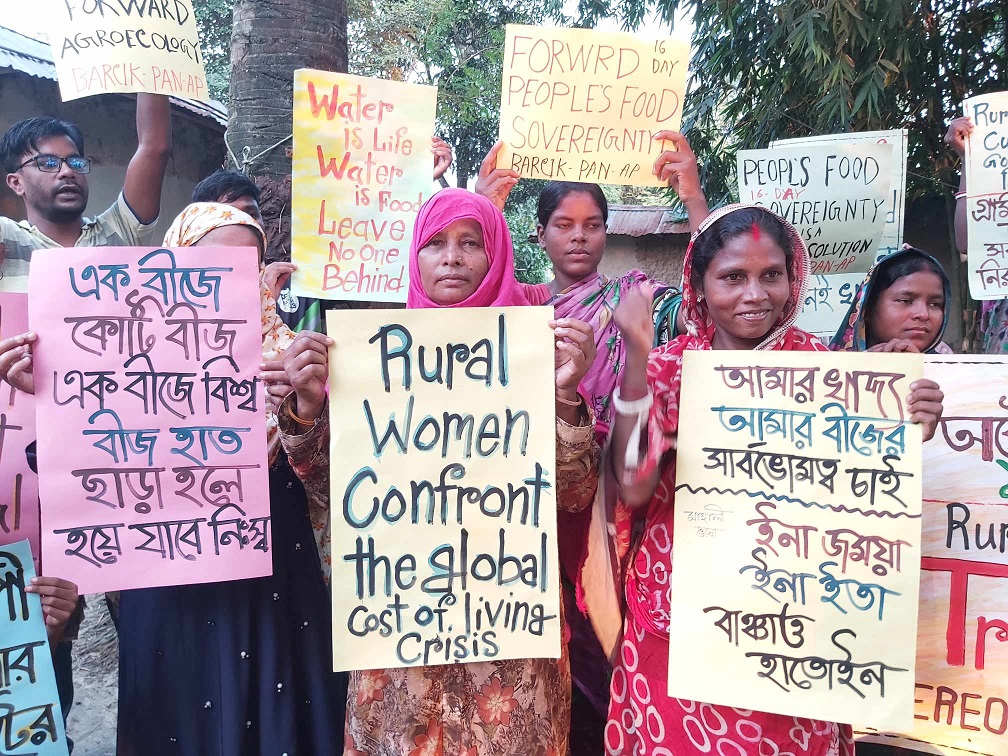
In coastal region BARCIK organized human chain demanding compensation for rural women who suffer a lot due to climate change induced disasters. The cyclones, storms and salinity intrusion has affected the life and livelihoods of the people particularly women in the coastal region. Their houses have been damaged, their crop lands have been contaminated due to salinity and their produces have been damaged. People of different stakes participated in the human chain expressing solidarity with the demand and concerns of the rural women. The rural women who participated in human chain said, ‘The climate has changed a lot. We are the victims of the climate change. The climate induced disasters cause different problems to our life and livelihoods.’ ‘Water crisis is immense. We are also facing problems to produce crops as our lands are contaminated with salinity. There are cyclone centres in the areas but they are not women friendly. We are experiencing discrimination in every sphere of our life. We want the end of our sufferings’- they added.

On the other hand, a seed and food fair was organized in the drought prone area Rajshahi to observe the international rural women day. Both Bengali and indigenous rural women participated in the seed and food fair displaying their diverse natives seeds and traditional foods. An indigenous rural women named Shuhagi Kisku displaying 45 types of plants and, uncultivated plants and foods in the fair said, ‘Today it is very difficult to get these foods and plants in the nature. If these uncultivated plants get disappeared in this rate one day we will face huge problems to collect food in the nature. Morjina Begum who displayed 49 types of different crops and vegetable seeds said, ‘I cultivate different types of vegetable and crops all the year round. Previously I buy seeds from the market but after being encouraged to conserve my own seeds by BARCIK I never buy any seed in the market. I exchange the conserved seeds with my neighbors and want to develop my house as a seed house.’
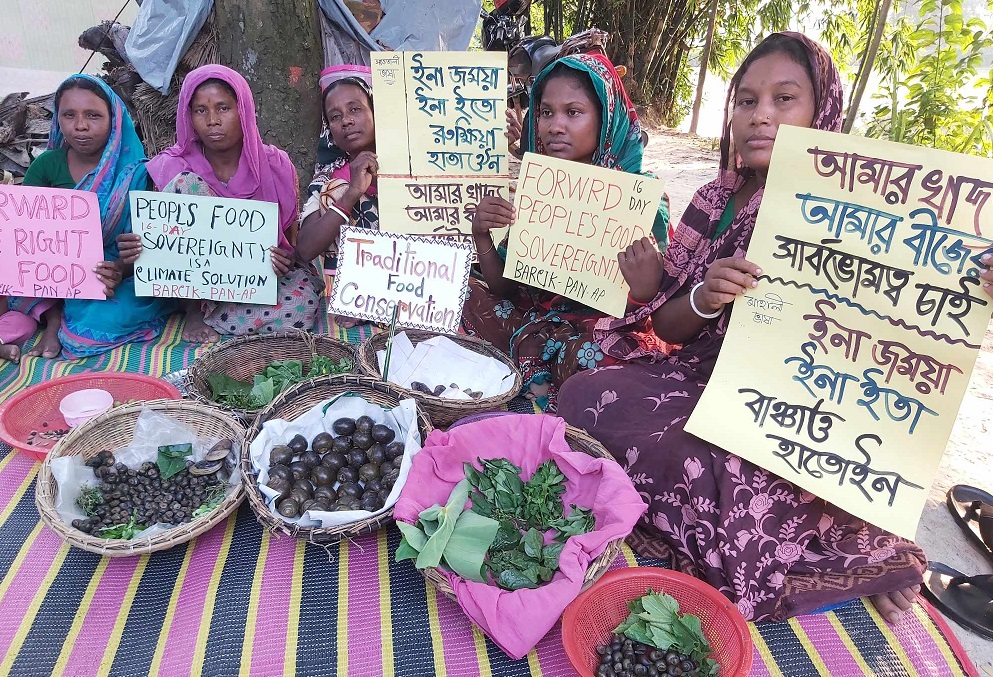
With the facilitation support from BARCIK women and farmers in Manikgonj arranged discussions, human chain and sports to mark the international rural women day. People from different occupations participated in these events and shared their concerns. The women participant Sufia Begum said ‘It is the women who gets early in the morning to do all households works and sleeps late in the night after accomplishing and managing all things. Women also perform agriculture works along men but they are not recognized as farmers and their works are not measured financially. We want the economic recognition of our household’s works’.
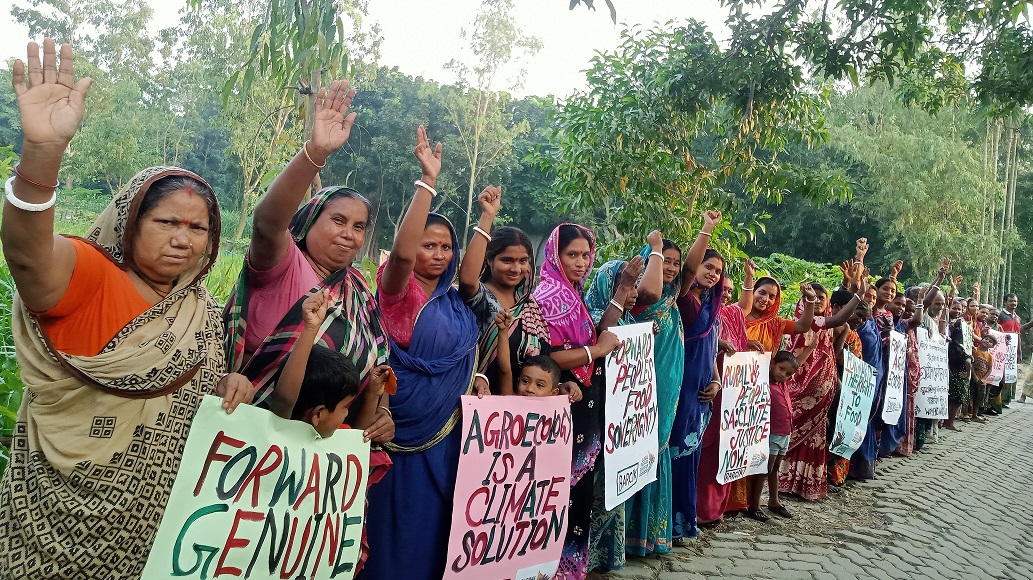
In the meantime, a seed fair and discussion was arranged by the indigenous and Bengali women in Kalmaknda Netrakona to observe the international rural women day with facilitation support from BARCIK. About 18 rural women displayed their native seeds, uncultivated food plants and other agriculture crops in the fair. An indigenous Garo women Tenifa Rongdi displayed 33 types of different crop and vegetable seeds in the fair and the 12 rural women exchanged seeds among themselves.
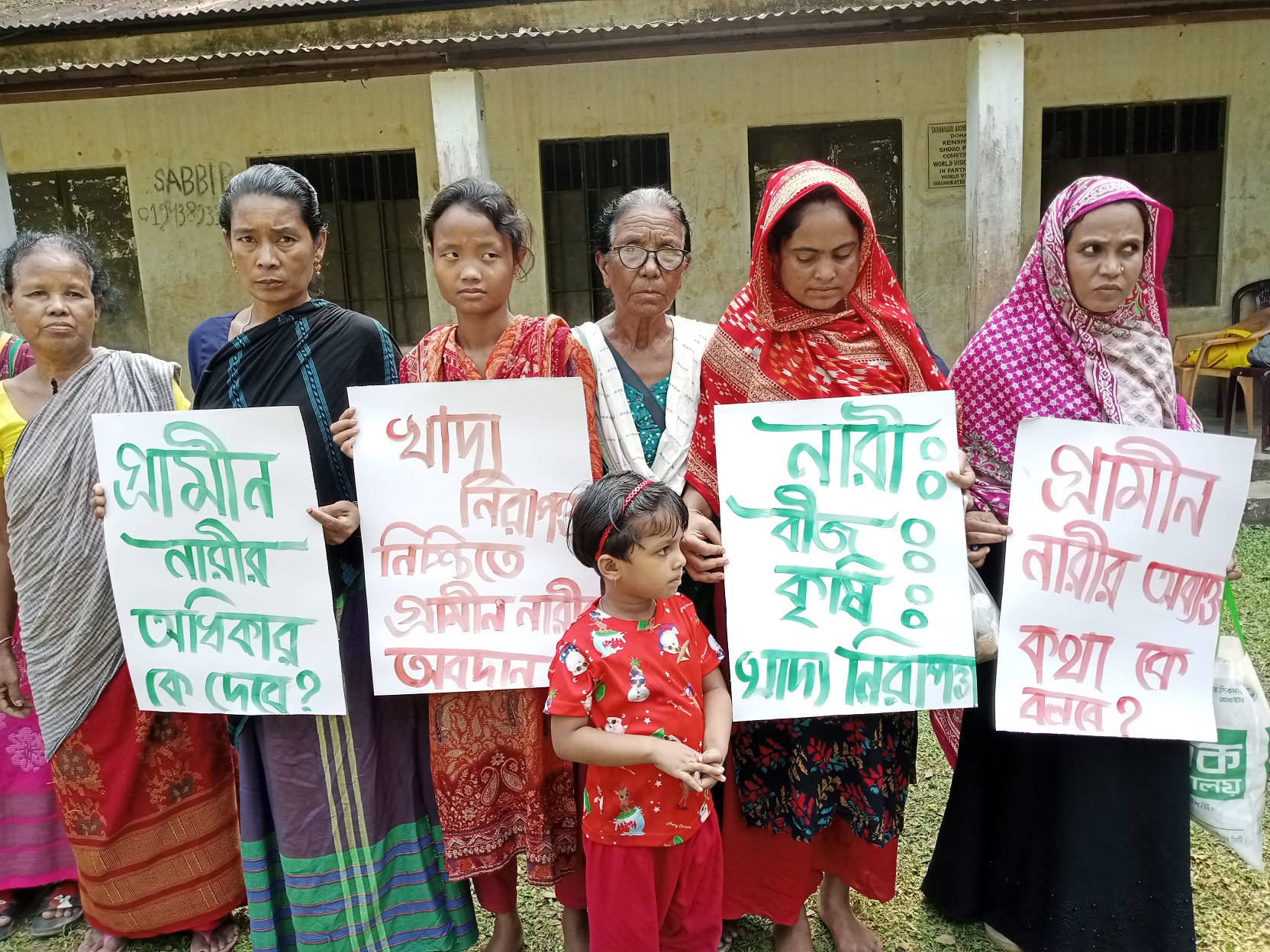
A woman farmer Justna Akter said, ‘If we conserve seeds we can produce crop in advance and can harvest the crops early which ensures us fair price as well.’ She went on saying, ‘Conserving the native varieties lessens our dependency on market seeds. That is why I always conserve seeds and exchange seeds with other. Bodin Jambil, a freedom fighter and senior citizen said, ‘Local varieties of seeds are incomparable with any other seeds in the market. You are not farmer if you do not have seeds of your own. Therefore, we should keep the culture of seed conservation to revive our agriculture.

